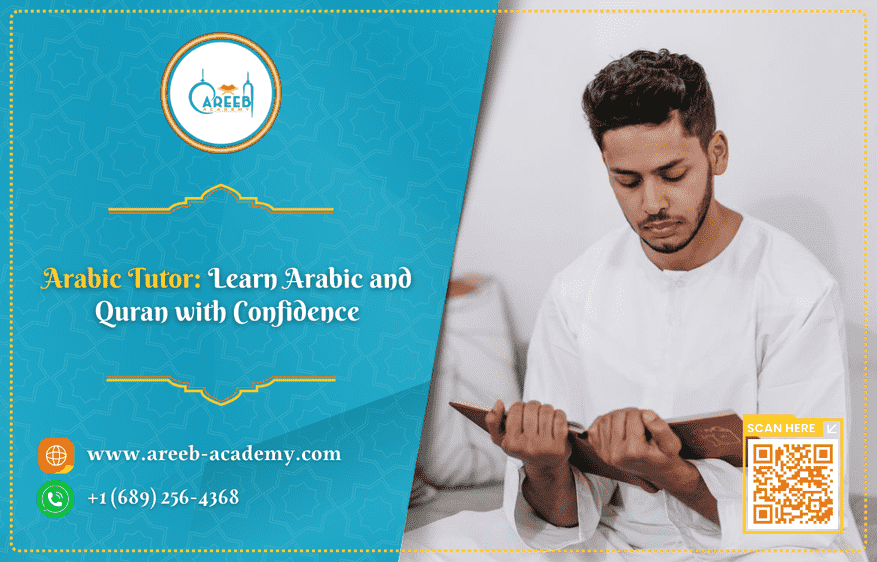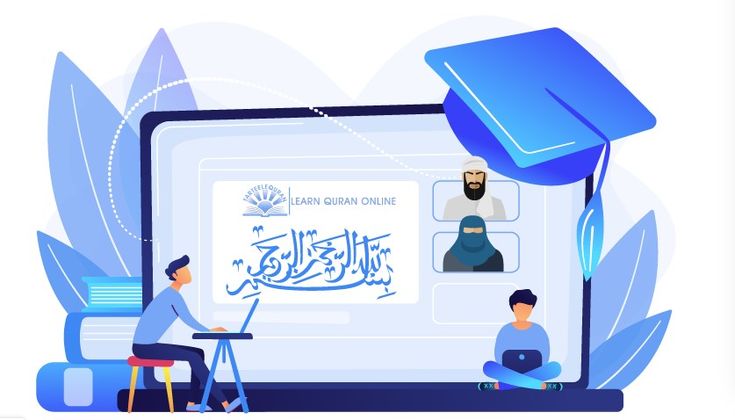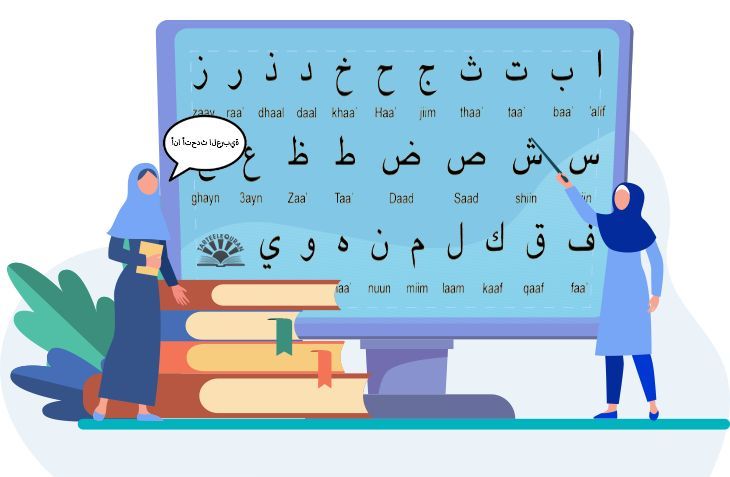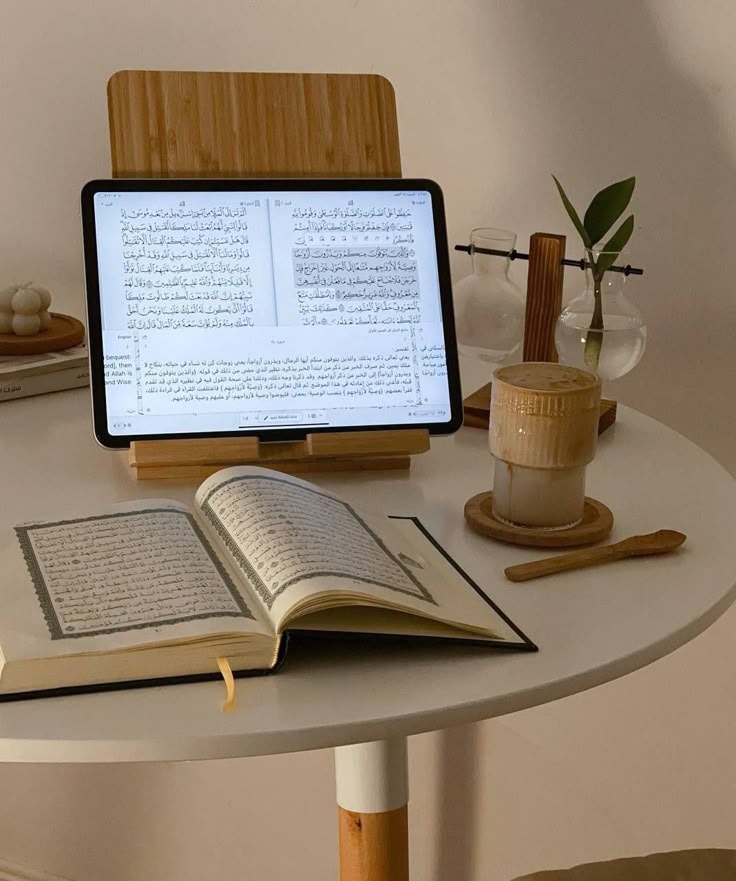
Choosing the right Arabic tutor can completely transform your learning journey. Arabic is not only a world language spoken across countries — it is also the language of the Quran, chosen by Allah for His final revelation. With the help of a native Arabic tutor, you gain more than grammar and vocabulary; you develop correct pronunciation, authentic expression, and the confidence to recite the Quran as it was revealed. A native tutor brings both cultural depth and linguistic precision, making them the most reliable guide for anyone who wants to learn Arabic fluently and connect deeply with the Quran.
The Value of Learning with an Arabic Tutor

Learning with an Arabic tutor is not just about having someone explain vocabulary or grammar rules. A tutor becomes your guide to a living language — helping you experience Arabic as it’s spoken, written, and recited. For many learners, starting alone can feel overwhelming: the script looks unfamiliar, the sounds are new, and the dialects can be confusing. With a tutor, however, you don’t just learn the language — you learn how to learn it in a structured, motivating way that keeps you moving forward.
Personalized Guidance with Arabic Tutor vs. Self-Study
On your own, it’s easy to get lost: Should you focus on Modern Standard Arabic first? How do you balance grammar study with Quran recitation? Are you pronouncing the letters correctly? An Arabic tutor gives you direction. They create a learning plan shaped around your goals — whether that means mastering Tajweed, speaking fluently in daily life, or preparing for academic or professional use. The tutor adjusts each lesson to your needs, something no book or app can do.
Faster Progress with Structured Lessons
Arabic’s unique script, root-based system, and wide range of dialects can slow learners down without proper guidance. An experienced Arabic tutor brings order to the process: beginning with pronunciation and script, then gradually building grammar, vocabulary, and practical usage. For Quran learners, this same structure applies to Tajweed, starting from the basics and progressing step by step. The result? You spend less time guessing what to learn next and more time making real progress.
Building Confidence in Language and Quranic Recitation
Confidence is often the missing piece in language learning. Many students hesitate to speak Arabic for fear of mistakes, while others worry about mispronouncing verses of the Quran. With a tutor, you gain a safe space to practice both. They correct you kindly, push you to try again, and guide you toward clear pronunciation. Over time, you don’t just grow confident in everyday conversations — you also recite the Quran with precision, gaining both fluency and spiritual fulfillment.
Core Qualities of a Great Arabic Tutor
Not every Arabic tutor offers the same experience. Some focus on grammar drills, others on conversation, and some dedicate their work entirely to teaching Quran and Tajweed. The best tutors, however, bring a balance of skills that help students grow in both areas. When looking for a tutor, here are three essential qualities that make a real difference.
Native or Fluent Arabic Speaker

A tutor who is a native or highly fluent Arabic speaker offers something you simply can’t get from textbooks or apps: authentic sound and expression. Arabic is rich with subtle sounds, like the difference between ṣād (ص) and sīn (س). These are nearly impossible to master without hearing them from someone who uses them naturally every day. For students of the Quran, this accuracy is even more critical, since the meaning of a verse can change with the wrong pronunciation. Beyond Tajweed, learning from a native Arabic tutor exposes you to natural rhythm, tone, and the unspoken “feel” of the language. This makes your speech more confident and closer to that of real Arabic speakers.
An Arabic Tutor who has Experience in Both Language and Quran Teaching
What sets a truly great Arabic tutor apart is versatility. Some learners want to improve their grammar for academic purposes, others want to communicate in a local dialect, and many seek guidance in reciting and memorizing the Quran. A tutor with experience in both language and Quran teaching can move smoothly between these goals, blending lessons when needed. For example, a session might begin with conversational practice in Modern Standard Arabic. It can then end with Tajweed exercises, giving you a holistic learning experience. This flexibility ensures you don’t have to choose between improving your communication skills and deepening your connection with the Quran. You can grow in both at the same time.
Patience and Clear Communication

Even the most motivated learners hit roadblocks. Arabic grammar can feel overwhelming, new sounds may take weeks to pronounce correctly, and Tajweed rules require practice and repetition. A patient tutor makes these challenges easier to overcome. Instead of rushing through material, they take the time to explain, repeat, and break concepts down into simple, digestible parts. Good communication means the tutor knows when to slow down, when to push you forward, and how to adapt examples to your background — whether you’re a complete beginner or already familiar with some Arabic. This quality often makes the difference between giving up and staying committed to the journey.
Learning Arabic and Quran Together
For many learners, the ultimate goal of studying Arabic is not only to communicate effectively but also to connect deeply with the Quran. Learning the language alongside the Quran allows students to experience its beauty, rhythm, and meaning firsthand. By combining language skills with Tajweed practice, learners gain a unique advantage: they develop fluency in Arabic while nurturing a stronger spiritual connection. With guidance from a skilled tutor, this journey becomes structured, enjoyable, and deeply rewarding, ensuring that both language and faith grow together.
Correct Pronunciation and Tajweed Rules with an Arabic Tutor
One of the foundations of learning Arabic alongside the Quran is mastering pronunciation. Arabic has sounds that don’t exist in many other languages, and without guidance, learners can easily mispronounce them. A tutor trained in Tajweed ensures that you not only pronounce letters correctly but also apply the rules of elongation, pauses, and articulation. This precision transforms your recitation into a spiritually uplifting experience, while also strengthening your spoken Arabic.
Understanding Quranic Arabic in Context with an Arabic tutor
The Quran is written in a rich and classical form of Arabic. Unlike modern dialects, Quranic Arabic uses unique vocabulary and sentence structures that carry deep layers of meaning. By learning with a tutor, you begin to see how words connect to one another and how grammar clarifies meaning. You also learn how verses speak to broader themes. This understanding allows you to move beyond memorization, appreciating the Quran in its original language while reinforcing your overall Arabic skills.
Strengthening Fluency and Faith at the Same Time
Perhaps the most rewarding part of learning Arabic with the Quran is the way both language and faith grow together. As you practice reciting verses, your fluency in Arabic improves naturally. At the same time, every lesson strengthens your spiritual connection. The Quran becomes not just something you read, but something you live with. This dual benefit makes learning Arabic and Quran together a deeply fulfilling journey, where progress in language mirrors progress in faith.
Different Types of Arabic Tutors You Can Choose
Arabic Tutor for Quran and Tajweed

If your main goal is to connect with the Quran, then choosing an Arabic tutor who specializes in Tajweed is essential. The Quran isn’t just about reading words — it’s about reciting them with accuracy and beauty. A Tajweed-focused tutor will guide you through the rules of elongation, articulation, and pauses, ensuring that every letter is pronounced correctly. This not only safeguards the meaning of the verses but also deepens your spiritual connection with the Quran. Many learners find that such lessons naturally improve their general Arabic pronunciation as well, since Tajweed requires clarity and precision in every sound.
For more tips and guidance on learning Tajweed effectively, check out our detailed blog post on Quran Tajweed.
Arabic Tutor for Modern Standard Arabic

Modern Standard Arabic (MSA) is the formal Arabic used in schools, books, official documents, and media across the Arab world. If you want to read newspapers, watch news channels, or use Arabic academically or professionally, an MSA tutor is ideal. Lessons typically start with the Arabic alphabet — 28 letters written from right to left — then move to grammar, vocabulary, and reading comprehension. With a tutor’s guidance, learning becomes structured and clear, helping you make steady progress without feeling overwhelmed.
You can also explore our Arabic Fusha course here to start learning systematically.
Online vs. In-Person Arabic Tutoring
Advantages of Online Arabic Tutors
Online tutoring has made Arabic learning easier and more exciting — even for very young learners starting from the age of five. With just a tablet or computer, children can connect to professional Arabic tutors from the comfort of home. This saves families the stress of commuting and creates a familiar environment where kids feel safe and focused. Tutors use interactive tools like digital whiteboards, games, stories, and visuals to make each lesson fun and engaging for children. Older learners benefit from features like screen sharing and recorded sessions, making it easy to review and stay on track.
When to Prefer In-Person Lessons
In rare cases, in-person tutoring may be considered — for example, if a child needs extra support with handwriting practice or if parents specifically want face-to-face sessions. However, most children, even at the age of five, adapt quickly to online learning when guided by patient and creative tutors. The interactive methods used online often hold their attention better than traditional classrooms.
Choosing What Fits Your Lifestyle
For families with young children, online Arabic tutoring often proves to be the most practical and effective choice. Parents can easily sit nearby to observe lessons, track their child’s progress, and feel reassured about the quality of learning. Older learners benefit from flexible scheduling that fits around school or activities, while younger kids enjoy fun, tailored lessons that make Arabic — whether language or Quran — part of their daily routine. For most students, online learning isn’t just convenient; it’s the most engaging and sustainable way to succeed.
Why Choose Areeb Academy to Achieve Your Learning Goal
At Areeb Academy, we are dedicated to helping every learner reach their full potential. Here’s what makes us stand out:
Expert Native Tutors
All our teachers are native Arabic speakers who bring both knowledge and passion into every lesson. Many of them hold Ijazah in Quran recitation and have years of experience teaching Arabic to learners of different ages and backgrounds. This means you’re learning from people who live the language, understand its depth, and can guide you through both the Quran and modern usage with authenticity and clarity.
Personalized Learning Experience
We know that every learner has different goals — some want to master tajweed, others need Arabic for school or work, while many parents want their children to build a strong foundation early on. Our tutors design lessons around your needs, ensuring the pace, content, and activities match your level and objectives. This personalized approach keeps students motivated and prevents the confusion that often comes with trying to learn alone.
Free Trial Class
Choosing the right tutor is a big step, which is why we offer a free trial class for every new student. This gives you the chance to meet your tutor, experience their teaching style, and see how engaging and supportive the lessons can be. Parents especially appreciate this, as it gives them confidence that their children will enjoy and benefit from the sessions before making any commitment.
Flexible and Convenient Learning
With our online system, you can learn from anywhere — no commuting, no wasted time. For children, this means a safe and comfortable environment at home where parents can easily supervise progress. For older students, it allows lessons to fit into busy school or work schedules. Online tools like interactive whiteboards, games, and shared resources make lessons engaging, while recorded sessions can be reviewed later for extra practice.
Supportive and Encouraging Environment
At Areeb Academy, we believe that learning should be enjoyable and stress-free. Our tutors encourage students to participate actively, ask questions, and practice without fear of mistakes. For young learners, lessons are made fun with stories, visuals, and activities that capture their imagination. For older learners, structured feedback and clear progress tracking build confidence step by step.
Conclusion

Choosing the right Arabic tutor can make all the difference in your learning journey. Whether your goal is to master Modern Standard Arabic, communicate fluently in Egyptian dialect, or recite the Quran with proper Tajweed, a native Arabic tutor provides the guidance, structure, and encouragement you need to succeed. At Areeb Academy, our experienced tutors combine linguistic expertise with cultural depth, ensuring that every lesson is engaging, personalized, and effective. With online convenience, trial classes, and a supportive learning environment, Areeb Academy is the ideal place to strengthen both your Arabic language skills and your connection with the Quran. Start your journey today and experience the confidence, fluency, and spiritual fulfillment that come from learning with the right tutor.
Start Your Arabic & Quran Journey Today!
Don’t wait to unlock the power of Arabic and the beauty of the Quran. With Areeb Academy, you’ll learn from expert native tutors who guide you every step of the way — whether it’s mastering Tajweed, speaking confidently, or understanding classical Arabic.
Enroll now or enjoy a free trial class! Experience personalized lessons designed for kids, adults, and learners at all levels — fun, engaging, and effective.
FAQs
1. What is an Arabic tutor?
An Arabic tutor is an experienced teacher who guides you through learning the Arabic language, including grammar, vocabulary, pronunciation, and in some cases, Quranic recitation and Tajweed. Tutors can focus on Modern Standard Arabic, spoken dialects, or Quranic Arabic depending on your goals.
2. Why choose a native Arabic tutor?
Native tutors bring authentic pronunciation, cultural understanding, and natural expression to every lesson. For Quran learners, a native tutor ensures accurate Tajweed and correct recitation, which is essential for preserving meaning and fluency.
3. Can I start learning Arabic online at a young age?
Absolutely! At Areeb Academy, even children as young as five can benefit from online lessons. Our tutors use interactive tools, stories, and games to make learning engaging, fun, and effective.
4. What is the difference between Modern Standard Arabic and spoken dialects?
Modern Standard Arabic (MSA) is used in formal settings, books, media, and academics, while dialects like Egyptian Arabic are used in everyday conversation. Depending on your goals, a tutor can help you focus on the style that best suits your needs.
5. Do you offer trial classes?
Yes! Every new student at Areeb Academy receives a free trial class to meet their tutor, experience the teaching style, and see how enjoyable and effective the lessons can be.
6. How does learning Arabic with a tutor help with Quranic recitation?
A tutor trained in Tajweed ensures correct pronunciation, proper pauses, and proper articulation. This guidance strengthens your fluency in both spoken Arabic and Quranic recitation, creating a meaningful learning experience that blends language skills with spiritual growth.
7. Is Areeb Academy suitable for adults as well as children?
Yes! Our tutors personalize lessons for all age groups, ensuring that children, teens, and adults can achieve their Arabic learning goals efficiently and enjoyably.


